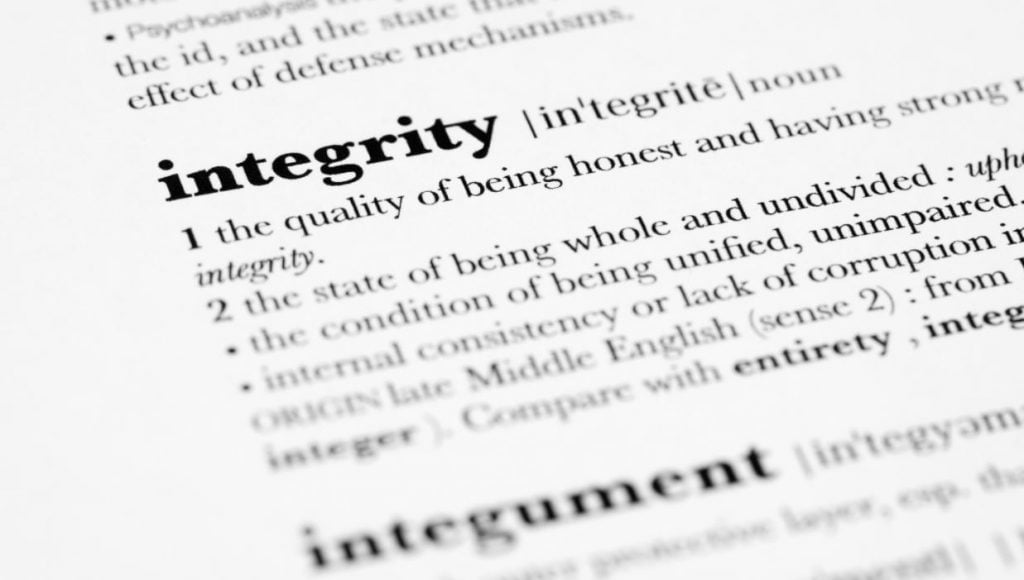Book A Demo
To book a demo please complete the form and we will come back to you shortly.
To book a demo please complete the form and we will come back to you shortly.
New Zealand

With tsunami-like force, New Zealand’s ‘don’t speak up’ culture gained walloping exposure in EY’s recently released Global Integrity Report, says ethics expert Jane Arnott.
While accustomed to seeing ourselves bathing in the perceived glory of a top ranking in Transparency International’s corruption index, the EY report (pdf) exposes a much more inglorious reality.
In highlighting ‘don’t speak up’, the report says that 40% of workers have not reported concerns about misconduct despite being impacted by it.
In a body blow to all the codes of ethics/conduct that boast integrity, the report also noted that unethical behaviour was often tolerated when the people involved were senior managers – despite New Zealand ranking third in the world for rating integrity as important.[1]
Further, the report found that of the nearly 60% of workers who reported misconduct felt pressure not to report it.
This finding is consistent with the informal research brought to light by The Ethics Conversation.
“They were supposed to support me”; “they said they would listen”; “I never imagined they would turn on me”; and “I had to get a lawyer, even though I was doing the right thing”, are just some of the experiences quoted.
Employees who speak up suffer the wrath of managers when wrongdoing is too close to home and the implications too far reaching.
If there was one Christmas message that The Ethics Conversation wasn’t expecting to hear quite so consistently – this was it. Managers in their 30’s or 40’s who did speak up had experienced nothing but intense suspicion, walls of indifference, doubt and speculation.
Once again, the value of an external speak up option – such as that provided by global ethical reporting company Report it Now, is solidly reinforced.
No external party experienced at receiving confidential reports (which includes listening to complaints, probing for more information, offering support and advice, and fact-checking) is going to try and use their influence against the reporter. Quite the opposite. And if ‘clamping down and shutting up’ is the operational style of the company, speaking up – loud and clear – is all the more important.

Keeping with the themes of the Global Integrity Survey, another relevant finding was that only a little over 42% reported regular training about relevant legal, regulatory and professional development.
Let’s just for one moment suggest that what they really mean is that the ethics part of conduct risk doesn’t get a look in. And, professional development tends towards the
‘we’re all ethical’, rather than understanding that ethics is as much a discipline as keeping within the speed limit or never falling foul of a parking metre.
Workshops on why speaking up is important and how it can be encouraged can’t be underestimated. Without workshops that demonstrate to employees what ethical leadership
looks like, and explains a company’s commitment to speaking up, negative experiences will only grow.
Extroverted, confident and value-conscious employees fare the worst. Put downs and perceptions about their ‘real motivation’ take hold and genuine consideration of the matters at hand slip away.
Lets not forget that, in some instances, senior managers either hold or have access to personal information about those who report to them. Such personal insight can quickly become weaponised and targeted. The atmosphere can change rapidly and the slightest hint of an open mind can be lost in battlelines already etched out through previous but unrelated interactions.
None of this is new. But too much is embedded in company cultures resistant to change.
Again the EY report offers substantiation. According to the report about half of the respondents said they would be concerned if information about management decisions were scrutinised. Some would behave unethically in order to protect their careers.[2]
Let’s just repeat that, with an underline, that some ‘would behave unethically in order to protect their careers’.
For those courageous people who have ever or who are currently speaking up, this statement is also the single most powerful insight into why your report, evidence and strength warrants respect.
It’s also why serious Boards of Directors, Trustees or alert investors need to reconsider their stance on internal reporting.
When the tsunami hits, it’s the safety of higher ground. In this case external reporting, that can best turn ‘don’t speak up’ into ‘speak up’.
But will your own business integrity allow it?
[1] RNZ Business 31 January 2022